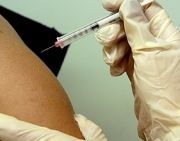Article
HPV Vaccination Recommendations from CDC Published
Author(s):
A new report from the US Centers for Disease Control and Prevention outlines the agency's recommendations concerning human papillomavirus vaccination and associated diseases.

A new report from the US Centers for Disease Control and Prevention (CDC) outlines the agency’s recommendations concerning human papillomavirus (HPV) vaccination and associated diseases.
The report, published in the August 29, 2014, issue of the Morbidity and Mortality Weekly Report, states that persistent infection with oncogenic HPV types can cause cervical cancer in women as well as other anogenital and oropharyngeal cancer in women and men. HPV also causes genital warts.
Two HPV vaccines are licensed in the United States, and both are comprised of type-specific HPV L1 protein, the major capsid protein of HPV. Both vaccines are administered in a 3-dose series.
Routine vaccination is recommended with HPV4 or HPV2 for females aged 11 or 12 years and with HPV4 for males aged 11 or 12 years. Vaccination also is recommended for females aged 13 to 26 years and for males aged 13 through 21 years who were not previously vaccinated. Males aged 22 through 26 years may be vaccinated.
Men who have sex with men and immunocompromised people, including those with HIV infections, through age 26 years, if not previously vaccinated, are also recommended for vaccination.


